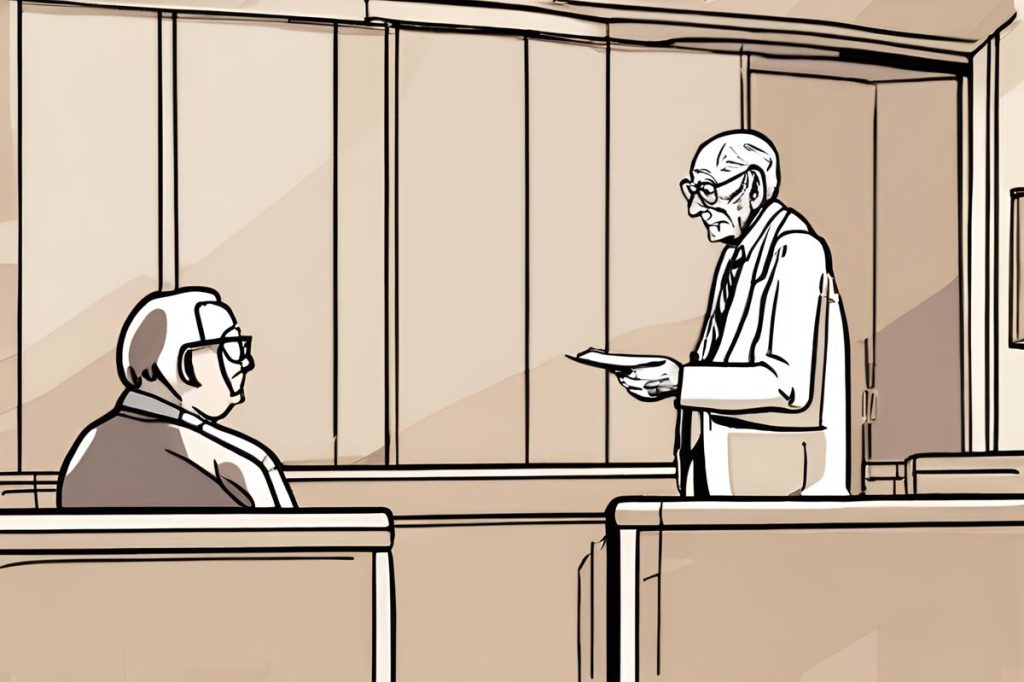In essence, statutory tenancy provides long-term security for tenants, safeguarding them from eviction as long as legal criteria are met. However, the succession of this tenancy to a spouse or child after the tenant’s death does not automatically transfer obligations, leading to legal complexities and questions of jurisdiction in cases like those seen in the Nicosia Rent Control Court.
What is a statutory tenancy and can it be inherited?
A statutory tenancy, created by Rent Control Law, protects tenants from eviction and allows them to occupy a property indefinitely, as long as they comply with legal requirements. It can be inherited by a spouse or child if they lived with the deceased tenant or worked on the premises, but does not automatically transfer the deceased’s obligations.
Introduction to Statutory Tenancy
Statutory tenancy arises from the provisions set out in the Rent Control Law, which offers protection to tenants against eviction. This form of tenancy is attached to the premises themselves and confers upon the tenant the right to remain in possession of the property. The protection under statutory tenancy is robust, as long as the tenants adhere to the legal criteria established by the law. An intriguing aspect of this kind of tenancy is the right of a surviving spouse or child to inherit the tenancy, under certain conditions. They must have been living with the deceased tenant or working on the premises at the time of the tenant’s demise.
Rights and Responsibilities of Successors
The succession of a statutory tenancy to a spouse or child does not automatically transfer the deceased tenant’s obligations. The overdue rent, for instance, remains the personal obligation of the deceased and is to be settled from their estate by the administrator. However, once the surviving spouse or child takes over the premises, they become the statutory tenant and must henceforth shoulder the responsibility of paying the rent.
Concurrently, a complex legal question might emerge if a statutory tenant dies during ongoing court proceedings intended to reclaim possession of the property. This raises issues about whether the right to possession, or the tenancy itself, persists post-mortem, and whether the Rent Control Court retains jurisdiction to pass judgment on the matter.
A Case Study from Nicosia Rent Control Court
In a recent insightful decision by the Nicosia Rent Control Court, the complexities of a case with such circumstances were dissected. The issue pivoted on whether the eviction cause, attributed to systematic rent payment delays, could sustain the legal proceedings after the tenant’s death. During the court case, the elderly tenant, beset with health issues, contested the eviction, arguing that their landlord was rejecting rent payments out of malice.
The proceedings included cross-examination and testimonies; however, the tenant’s death occurred before the final verdict. The court faced the need to reassess the situation and called upon the involved parties to decide on the matter’s relevance in light of the tenant’s demise.
Legal Interpretation and Outcome
The court’s decision hinged on the definition of actionable rights and their survivability beyond the death of a party. It emphasized that the essence of a statutory tenancy revolves around the presence of a ‘tenant.’ Upon the tenant’s death, the question arose whether the tenancy continued to exist without a living tenant.
The court concluded that, as there was no longer a statutory tenant nor a claim for another to be recognized, the actionable right had ceased. The intent of the Rent Control Law is to safeguard cases where a statutory tenant’s death leaves behind a spouse and/or children residing permanently on the property. However, this protection is not directly transferable or inheritable and does not establish a usufructuary right.
With no statutory tenant in place, the Rent Control Court acknowledged its lack of jurisdiction to render a substantive decision. Consequently, the case was dismissed, having lost its actionable basis and, with it, the very subject of the trial.
George Coucounis is an expert in Immovable Property Law, with his practice stationed in Larnaca, offering insights into such complex legal matters.
How does statutory tenancy protect tenants from eviction?
Statutory tenancy, established by the Rent Control Law, allows tenants to occupy a property indefinitely, as long as they meet legal requirements. This protection safeguards them from eviction and grants them the right to remain in possession of the property.
Can a statutory tenancy be inherited by a spouse or child?
Yes, a statutory tenancy can be inherited by a spouse or child if they lived with the deceased tenant or worked on the premises. However, the obligations of the deceased tenant, such as overdue rent, do not automatically transfer to the successor.
What happens if a statutory tenant dies during ongoing court proceedings?
In cases where a statutory tenant dies during ongoing court proceedings, legal questions may arise regarding the continuation of the tenancy and the jurisdiction of the Rent Control Court. The court may need to reevaluate the situation and determine the relevance of the case in light of the tenant’s demise.
How did the Nicosia Rent Control Court handle a case involving the death of a statutory tenant?
In a recent case in the Nicosia Rent Control Court, the court had to assess whether the actionable rights of a statutory tenancy continued after the death of the tenant. Ultimately, the court determined that without a living tenant or a claim for another to be recognized, the actionable right ceased to exist. As a result, the court dismissed the case due to the lack of jurisdiction to make a decision without a statutory tenant in place.

